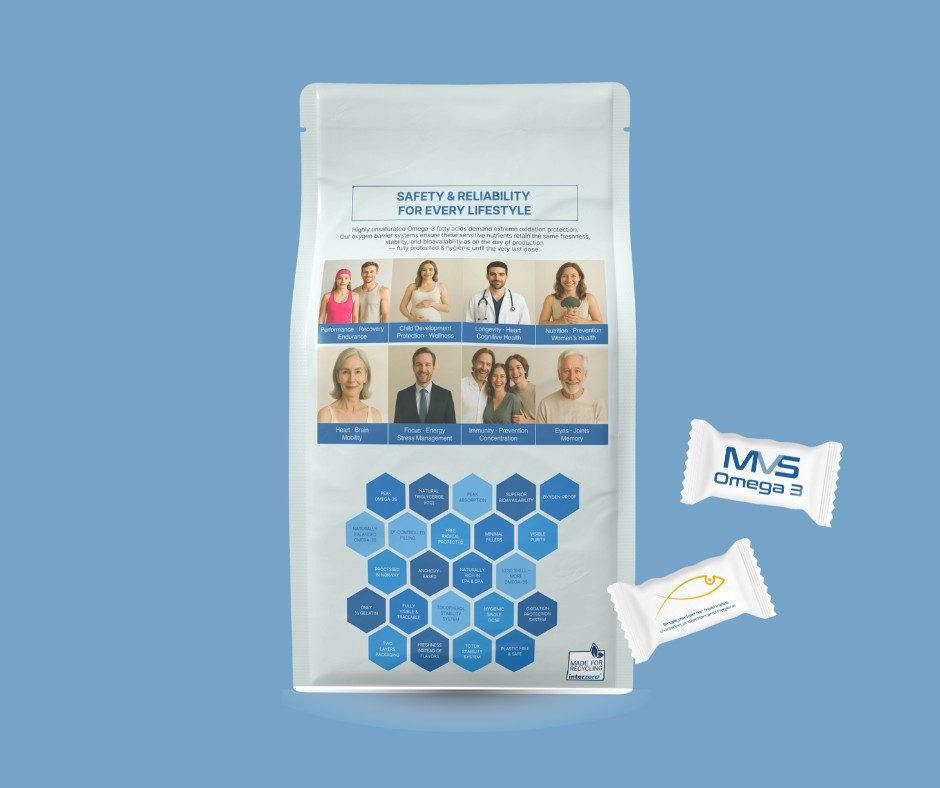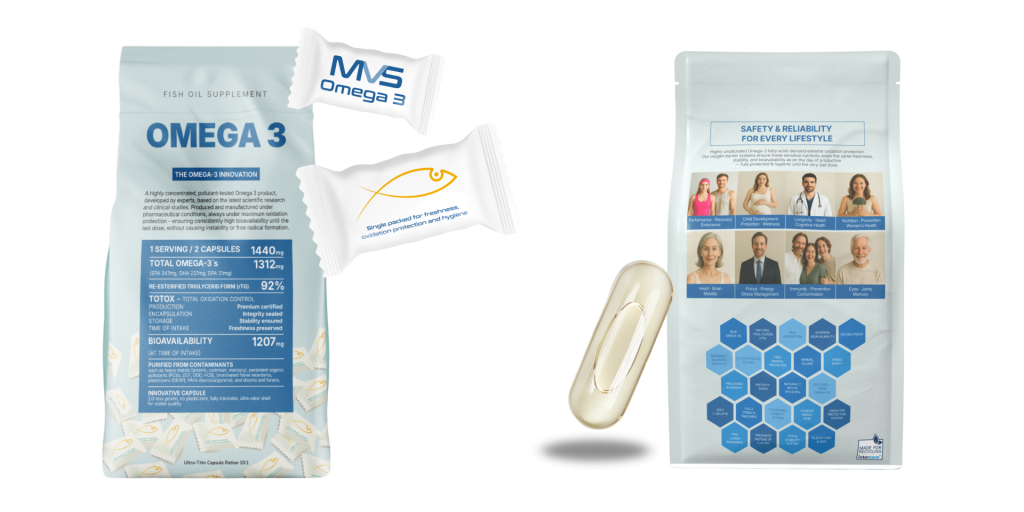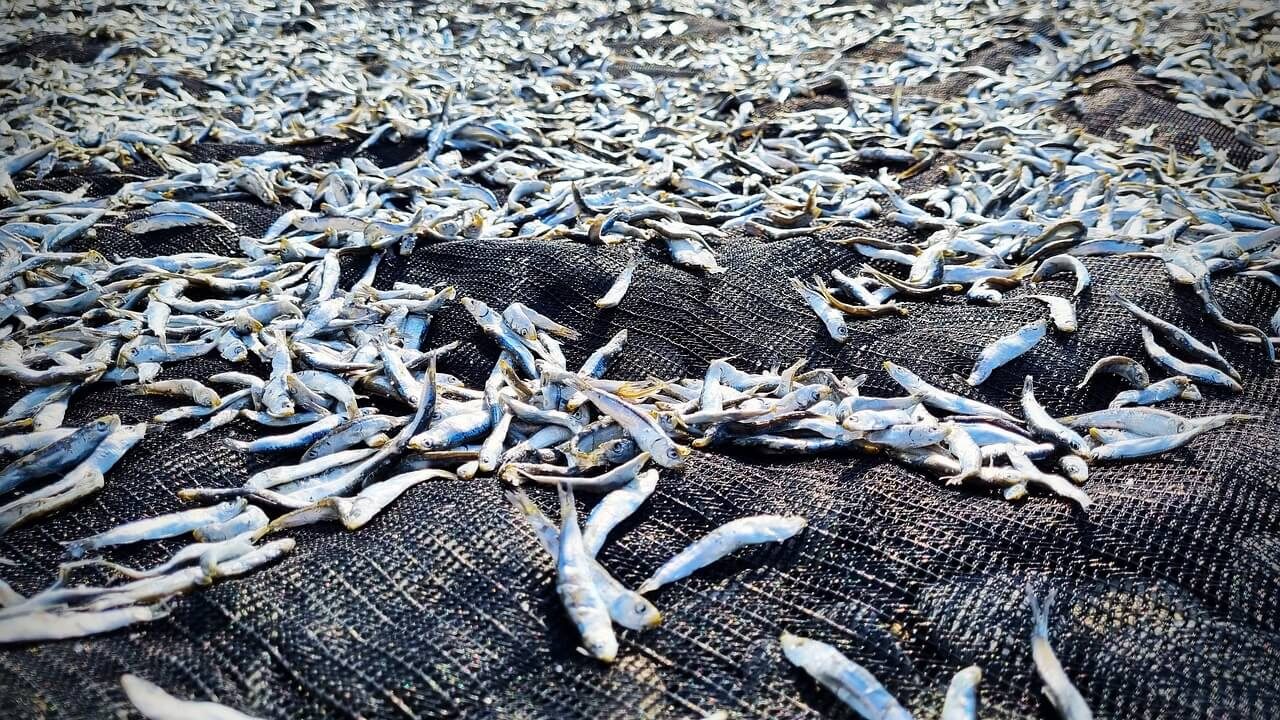Peruvian anchovy fishery fish oil supply chain overview: The global Omega‑3 landscape revolves significantly around one aquatic powerhouse: Peru’s anchoveta fishery—the largest single‑species fishery by volume. Yet, production instability, driven by environmental shifts and regulatory dynamics, continues to ripple through fish oil availability, pricing, and ultimately, consumer access.
Table of Contents
Environmental Perturbations and Supply Volatility
The El Niño phenomenon looms large in discussions about supply chains. In 2023, a pronounced El Niño event forced the cancellation of Peru’s first anchovy fishing season and an early closure of the second in the north‑central zone—Peru’s principal production area—culminating in lost quotas exceeding 25 %, and triggering a sharp supply shock.
Following this disruption, fish oil and fishmeal surged to record‑high prices, with some analysts warning of an “acute shortage” of these critical Omega‑3 base ingredients.
Signs of Rebound and Market Normalization
Optimism surfaced as 2024 progressed. Expectations of biomass recovery raised hopes for stronger fishing seasons in 2024 and 2025. Higher quotas were set—1.09 million metric tons for the canceled first season and 1.68 million for the second—and the industry welcomed these increases as evidence of a rebound.
Indeed, fish oil prices began to retreat significantly. By November 2024, prices were approximately 64% below their 2023 peaks; fishmeal prices dropped by 38%. Analysts from DNB Markets anticipated continued declines into late 2024 and early 2025. Complementing this, supply chain reports signaled that raw material shortages were easing, as recent fisheries data grew more favorable.
Enduring Risks Along the Supply Chain – Peruvian anchovy fishery fish oil supply chain
Still, persistent challenges temper near‑term optimism. Industry experts flagged four potential disruptors to a full recovery: black‑market anchovy supply, stringent regulations, pressure on the southern fishery zone, and broader climate variability. The south zone, often overshadowed, remains especially vulnerable and calls for greater attention.
Beyond climate and governance, overfishing and illegal, unreported, and unregulated (IUU) fishing continue to imperil anchoveta resilience; plastic pollution, gear loss, and enforcement gaps further compromise marine ecosystems and long‑term harvesting capacity.
Broader Impacts on Fish Oil Availability and Price Stability
As Peru supplies approximately 30 % of global fishmeal and a substantial portion of fish oil, these fluctuations send shockwaves across the Omega‑3 sector. In combination with surging consumer demand and the expanding aquaculture industry, supply uncertainty elevates both cost and strategic risk across the value chain.
MVS Omega-3’s Strategic Outlook and Supply Commitment

At MVS Pharma, we recognize that a resilient Omega-3 supply chain requires proactive stewardship grounded in transparency, sustainability, and diversification. Our approach includes the following points.
Epax® Norway – Our Trusted Partner
At MVS Pharma, we source exclusively from Epax® Norway—a global leader in high-purity omega-3 concentrates and a pioneer in sustainable marine sourcing.
Certified Quality & Standards You Can Trust:
- Friend of the Sea (FoS): Certified since 2009, sourcing only from well-managed fisheries.
- MarinTrust: Guarantees best practices for marine ingredient sourcing and production.
- ISO 14001 (DNV): Environmental management certification, reducing ecological impact.
- Pharmaceutical Approvals: Ålesund facility approved by NoMA for APIs, inspected by the U.S. FDA.
- EU REACH Compliance: Protecting both human health and the environment.
EcoVision – Sustainability in Action
Epax’s EcoVision framework follows the FAO Code of Conduct for Responsible Fisheries, ensuring every step is ethical and eco-friendly.
- Sustainability: Only certified sustainable fisheries.
- Traceability: Full custody from ocean to capsule.
- Regulatory Excellence: Compliance with EU, U.S., and global standards.
- Continuous Improvement: Transparent ESG reporting with measurable results.
For MVS Omega-3, EcoVision ensures every capsule is not only effective but also ethically and environmentally responsible.
Proven ESG Results Epax®(2021–2023)
- Carbon Footprint: –13.3% (2022), –9% (2023).
- Renewable Energy: 95% hydroelectric (2023), target 100% by 2024.
- Water Savings: –65% potable water use for cooling, goal –80% by 2025.
- Circular Economy: 97% reuse of marine by-products (vs. global avg. 7.2%), target 98%.
This multi-pronged strategy ensures that MVS Pharma delivers not only a high-quality Omega-3 product, but also the trust and consistency our partners and consumers rely on.
How to Identify Eco-Friendly Omega-3 Supplements
When choosing fish oil, look for:
- Third-party certifications (FoS, MarinTrust).
- Traceability back to the fishery.
- ISO 14001 compliance for environmental standards.
- Pharmaceutical-grade oversight (FDA, EU, NoMA).
- ESG reporting with measurable progress.
MVS Omega-3: Health in Harmony with Nature
With MVS Omega-3, you’re investing in:

- premium purity and efficacy,
- full transparency and traceability,
- and sustainably sourced fish oil.
Every capsule is a step toward protecting our oceans—because true health must also be sustainable health.
MVS Omega-3 combines premium health benefits with full environmental responsibility. Sourced exclusively from Epax® Norway, it offers pharma-grade packaging standards, the highest purity, verified sustainability, and complete traceability. Certified by Friend of the Sea, MarinTrust, ISO 14001, and approved by global regulators, MVS Omega-3 ensures every capsule supports both personal well-being and ocean health. With measurable progress in reducing carbon footprint, renewable energy use, water savings, and circular economy practices, it represents a supplement where true health and sustainability meet.

Conclusion
The turbulence in Peru’s anchovy fishery—born of climatic shifts like El Niño, regulatory complexity, and environmental stressors—has indeed strained global fish oil markets. Though early 2025 shows signs of supply stabilization and price normalization, the industry must remain vigilant about structural risks that could re-emerge.
For MVS Pharma, our commitment to resilience, sustainability, and sourcing excellence means a confident outlook in an uncertain sea.


